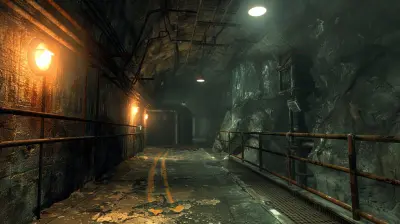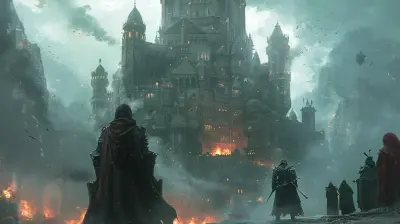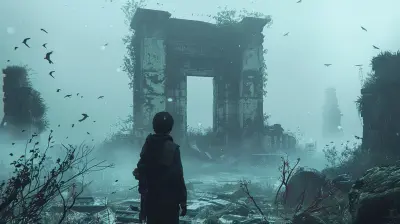What Makes a Great RPG Villain: Depth, Motivation, and Challenge
7 June 2025
If you've spent any real time diving into role-playing games (RPGs), you know that the heart of a good story beats strongest when the villain truly delivers. Sure, we all love slinging spells, leveling up, and looting gear—but what makes it all memorable is the enemy we’re up against. A bland villain? That’s just another speed bump. But a great villain? Now that’s what gives the journey its purpose.
So, what really makes a great RPG villain stand out? Let’s break it down—depth, motivation, and challenge. These three ingredients are the holy trinity of villainy, and when they come together just right, they can turn a good RPG into a legendary one.
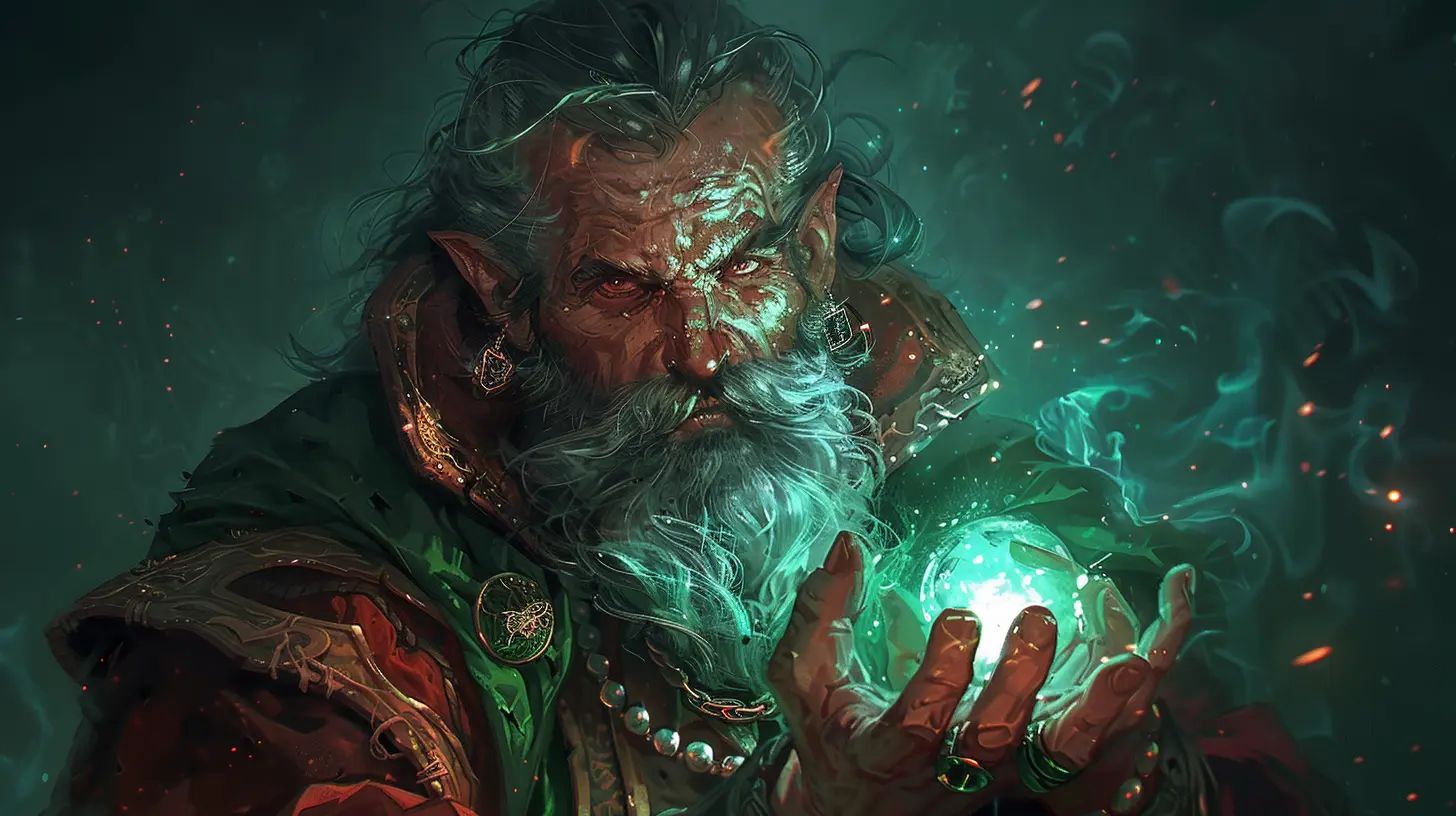
The Villain Isn’t Just Evil—They’re Complex
Let’s get one thing straight: mustache-twirling, cartoon-level evil doesn't cut it anymore. We crave villains that feel real. Ones that make us pause and think, “Wait, do they have a point?”Hello, Complexity! Goodbye, One-Dimensional Baddies
Think about iconic RPG villains like Sephiroth from Final Fantasy VII or The Illusive Man from Mass Effect. They’re not evil just for the heck of it. They’ve got layers—like ogres. Or onions. Or parfaits, depending on your mood.Sephiroth’s fall from grace wasn’t just sudden madness—it was betrayal, identity crisis, and grief channeled into destruction. That’s compelling. He thought he was the hero of his own story. And that’s what makes a villain great—they believe in what they’re doing.
Make Us Feel Something
The best villains don’t just cause destruction—they stir something inside us. Fear, anger, empathy, confusion. When a villain makes us question our morals or sympathize with their pain, the game transcends.Look at Dragon Age: Origins. Loghain isn’t just a traitor—he believes his betrayal protects his kingdom. You might hate him, but you also understand him. That’s the kind of depth that turns a name into a legend.
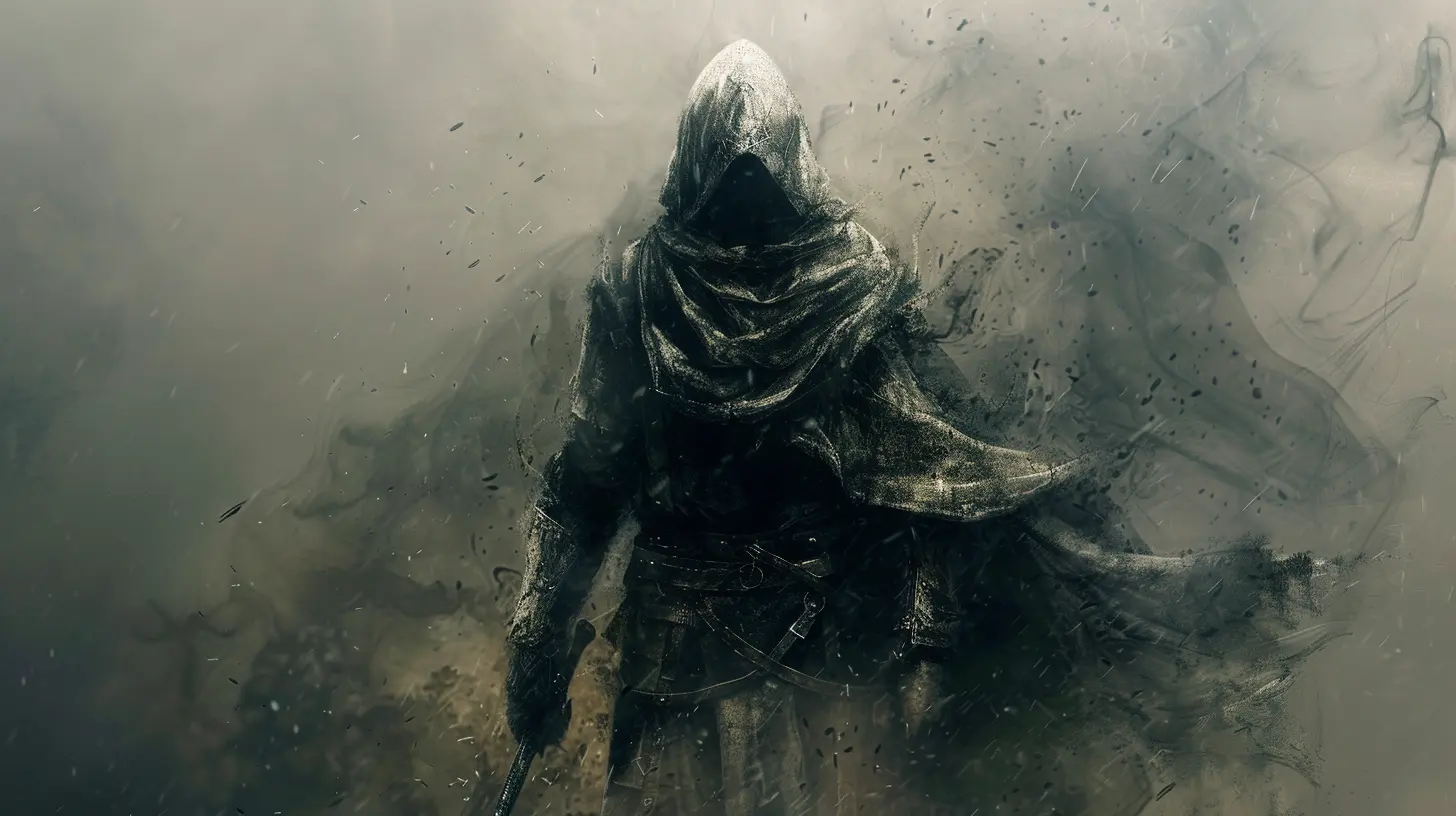
Motivation: Why They Do What They Do Matters
A villain without motivation is like a sandwich without the filling. It might look okay, but there’s nothing in there to chew on.Personal Goals = Powerful Storytelling
The truly unforgettable RPG villains didn’t just wake up and decide to ruin your life. They have reasons. Maybe it’s vengeance. Maybe it’s ideology. Sometimes, it can even be love twisted into obsession.Take GLaDOS from Portal. Is she trying to kill you? Yes. Is it funny and terrifying? Also yes. But her backstory, her transformation, and her warped sense of purpose make her compelling. She’s not just an AI villain, she’s a character with a voice (an iconic one) and a personal mission.
Mirror, Mirror
Great villains often reflect something in the hero—or even in us. They’re what we might become under different circumstances. That mirror effect? Super powerful. It binds the hero and villain together in a poetic little dance of destiny.In The Witcher 3, Eredin may be the big baddie, but it’s characters like Gaunter O’Dimm who really twist the knife. He’s charming, he’s knowledge-rich, and his terrifying power lies in temptation. He dares Geralt—and us—to consider what we’d trade for a wish fulfilled. Scary stuff, right?
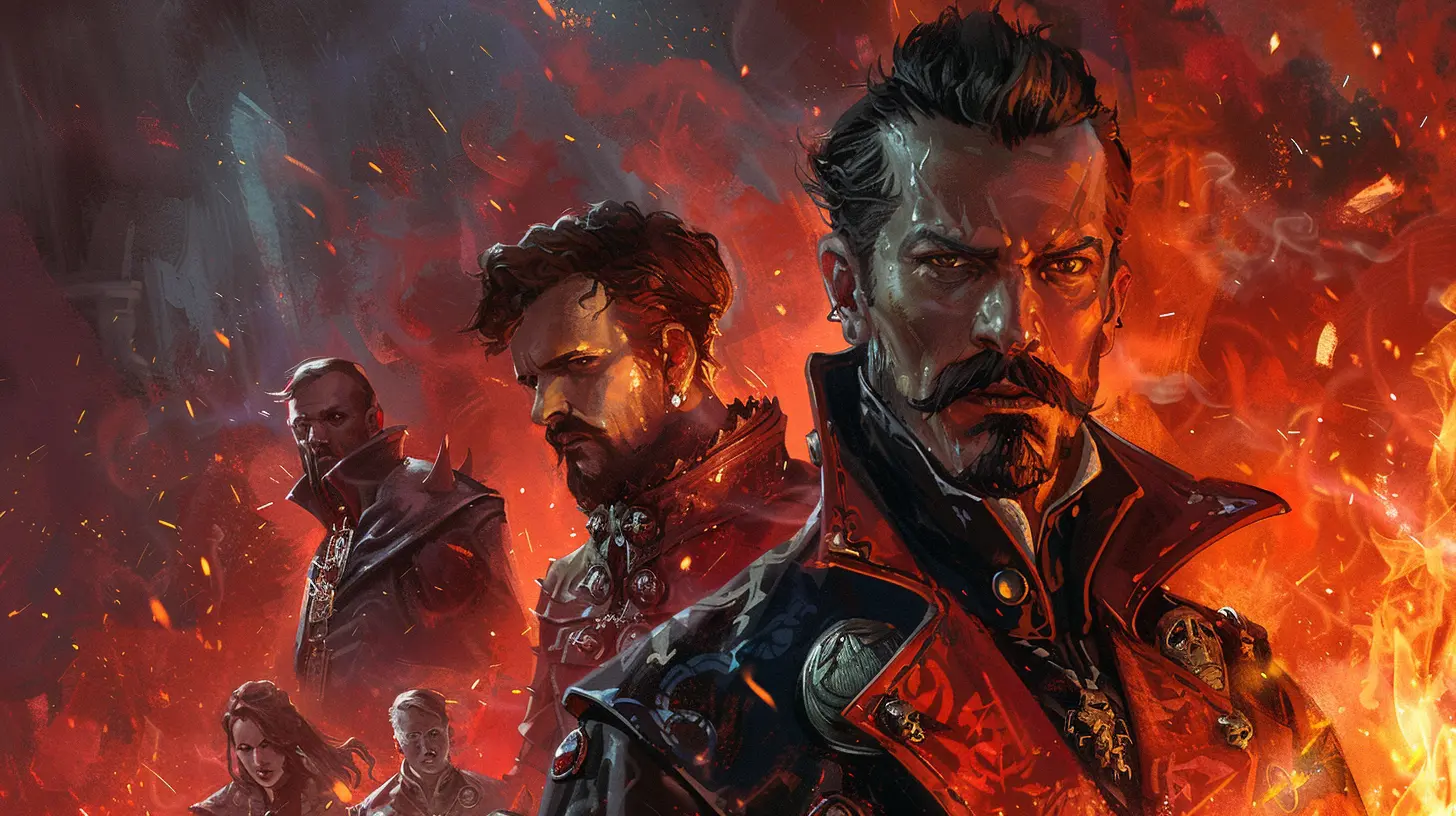
Challenge: They Should Make Us Work for It
Now, let’s talk gameplay. Because even if a villain has all the backstory in the world, they still need to bring tangible tension to the table.Difficulty Done Right
A good villain makes us sweat—mentally and physically. They push us to plan, adapt, and replay fights over and over again until our thumbs are sore.Dark Souls fans, you know what I’m talking about. Bosses like Artorias aren’t just hard—they’re narratively rich. He’s not a random monster; he’s a once-noble hero corrupted by the abyss. Beating him feels like closing a tragic chapter.
And that’s the magic—when challenge meets story. You’re not just grinding levels. You’re overcoming a piece of history.
Unpredictability Keeps Us Hooked
Predictable villains? Snooze fest. Great villains surprise us—not just by switching tactics mid-fight, but by evolving through the game.A well-designed RPG villain changes over time. They adapt. They taunt. They show up just when you think you’re safe. Like Handsome Jack in Borderlands 2. His snarky voice in your ear becomes more chilling as his true nature reveals itself. He’s hilarious—until he’s not.
Stakes Gotta Be High
If the villain doesn’t feel like a real threat, the story loses momentum. What are we fighting for? What’s at risk?High stakes don’t have to mean “end of the world” every time. It could be personal. Maybe they’ve taken someone the hero loves. Or maybe they control something central to the game’s world (hello, political power, dark magic, or literal gods).
Whatever it is, make it matter. If it matters to the hero, it matters to the player.
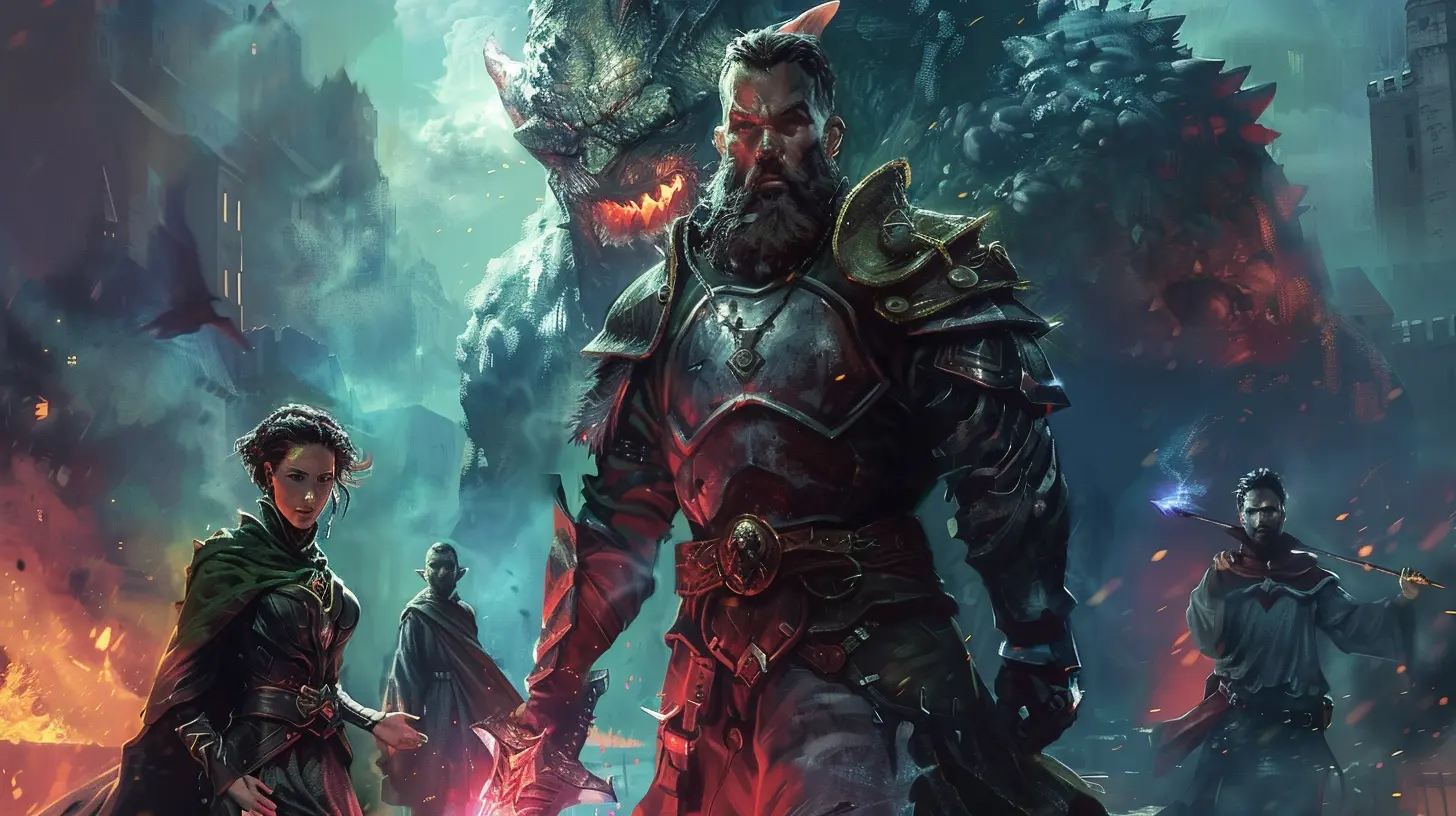
The Relationship Between Hero and Villain
Honestly, the best RPGs feel like epic duels—not just in combat, but in ideology. It's not hero vs. evil—it’s belief vs. belief. That tension? That’s where the magic happens.Mutual Growth
Here’s a cool idea: your villain helps you grow. Not just in power, but in character. Maybe opposing them leads the hero to question their own values or discover a hidden strength.Imagine if the boss was more than an obstacle—what if they were a teacher? In a way, villains help shape the hero’s arc. And that’s beautiful, in a tragic sort of way.
Personal Connections Hit Hard
The “surprise, I’m your father” trope? Done to death. But—when used right—it still works. Because personal connections up the emotional ante.In Knights of the Old Republic, the twist that you are the villain (Darth Revan) changes everything. That’s not just a plot twist—that’s character-altering. Suddenly, every choice you make spins on a different axis.
Villains With Impact: Some Standouts
Let’s take a moment to nod at a few legendary RPG villains that check all the boxes:1. Sephiroth – Final Fantasy VII
It’s not just the sword. Or the tune (you’re humming it now, aren’t you?). It’s his tragic origin, his god complex, and how personal his vendetta becomes.2. GLaDOS – Portal
Witty, chilling, iconic. GLaDOS is unforgettable because she’s not just a villain—she’s your constant tormentor with a sarcastic twist of personality.3. Handsome Jack – Borderlands 2
Charismatic, cruel, and darkly funny, Jack is a masterclass in deceptive development. You laugh with him, then cringe in disbelief.4. The Illusive Man – Mass Effect
He’s smooth, he’s powerful, and his questionable morals raise huge questions about ends and means. Bonus points for being voiced by the always-excellent Martin Sheen.5. Gaunter O’Dimm – The Witcher 3: Hearts of Stone
Mysterious and terrifying, Gaunter plays the long game with you. He doesn’t need to threaten you—he just waits for you to unravel yourself.
Crafting the Perfect Villain Isn’t Just for Writers
Game devs, if you're reading this—take note. A great villain isn’t just a script. They're an experience. Their presence should be felt in the music, the environment, the NPCs’ whispers, and even the user interface. Everything adds up.Include those little touches. Let them taunt through radios, alter the world map, twist quest outcomes, and corrupt allies. Make us feel like they’re always watching.
And players? Don’t just fight to win. Understand. Dig into those codex entries. Talk to NPCs. Piece together the fall from grace. That’s where the richness is.
Final Thoughts
Great RPG villains aren't born—they're built. Layer by layer. With complex backstories, real motivations, and gameplay that keeps us guessing. They're not just there to stop us—they’re there to push us. To force growth. To question our path.So the next time you're gearing up to face off against some epic big bad, ask yourself: is this just a fight—or is this the climax of something special?
Because when a villain is done right? They’re not just the end of your journey. They’re the reason it mattered.
all images in this post were generated using AI tools
Category:
Role Playing GamesAuthor:

Emery Larsen
Discussion
rate this article
3 comments
Cora McGlynn
Great insights! The interplay of depth and motivation in RPG villains truly enhances the narrative experience. I'm curious about how game mechanics can further elevate their challenge. What are some examples where gameplay innovation turned a villain into a memorable foe?
June 14, 2025 at 5:00 PM

Emery Larsen
Thank you! A few notable examples include "Dark Souls," where the challenging mechanics and lore of bosses like Ornstein and Smough create memorable encounters, and "The Witcher 3," where choices impact the complexity and depth of villains like Emhyr. These innovations enhance both challenge and narrative engagement.
Kismet McKnight
Villains with heart steal the show!
June 14, 2025 at 4:44 AM

Emery Larsen
Absolutely! Villains with depth and relatable motivations add complexity and make the story more engaging, truly captivating the players.
Kenneth Campbell
Great insights! A compelling villain truly enhances the RPG experience. Keep it up!
June 12, 2025 at 3:25 AM

Emery Larsen
Thank you! I’m glad you enjoyed it. A well-crafted villain really does elevate the entire RPG experience!

